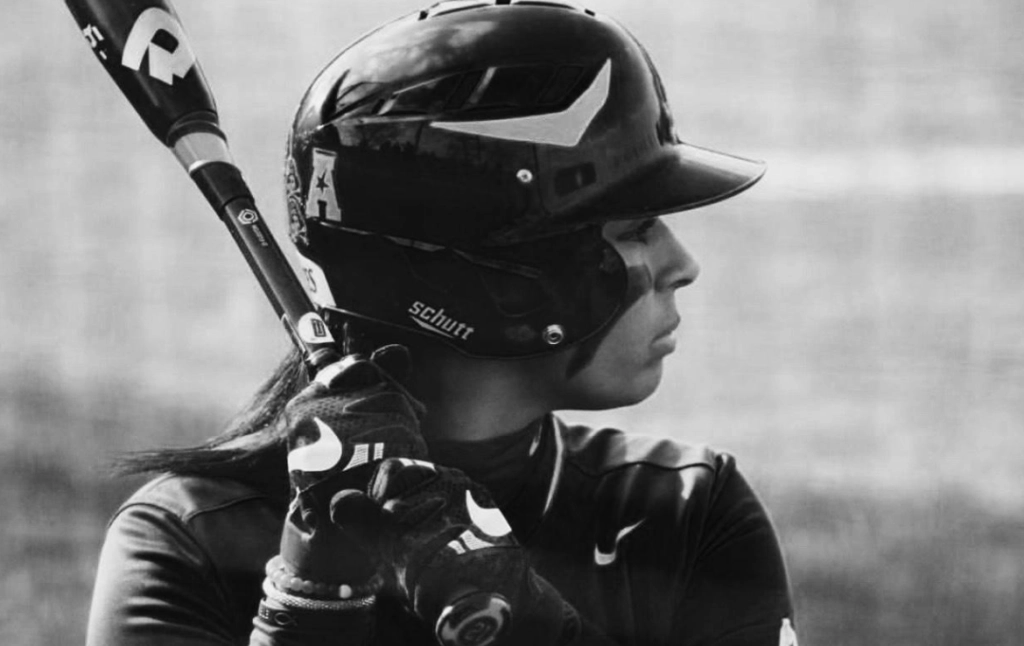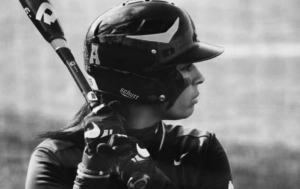Ali Ramirez is a Division I softball alumna of East Carolina University. After traveling across the country to be a student-athlete, her coaches mentally abused her through her first two years of college. Although thoughts of quitting were present in her mind, the young athlete persevered through the abuse and is now helping the next generation of student-athletes.
A regular starter for the East Carolina softball team, Ali Ramirez found herself struggling with mental health through what was supposed to be the best years of her life. Here are some of her experiences with coaches during her college career. Ramirez had her stent with one group of coaches when starting her recruitment process, then another group in her sophomore year, and then three new coaches managing the team her last two years. Student-athletes struggle enough with transitioning from high school sports to college sports so dealing with this type of chaos seemed almost impossible to stay sane. Being nearly 3,000 miles from home, making new friends, and learning time management that goes into being a student-athlete took its toll on Ali.
The first group of coaches at East Carolina had an horrible impact on Ali's mental health and self-worth throughout her college career. Ali knew Division I softball would be tough and because of her dad, who is a high school defensive line coach, who motivated and pushed her through high school, she was ready. The coaches were an entirely different level of tough. For the young freshman, she was already dealing with the fact that she was a long way from home and she did not know anyone but the coaches did not help, they just made things worse. Ali's practices involved derogatory comments such as name-calling, cursing at her and her alone, and continuously calling her out on things. “It wasn't like my dad coaching his guys and being tough, telling them to get it together. It was ‘Ali, why are you so stupid?! What is wrong with you? With some choice words thrown in there.” Ali and her teammates noticed the way the coaches treated her compared to the rest of the team, the nasty remarks not only lowered her confidence but quickly affected her overall mental health.
Ali contemplated quitting before her freshman year was even over because of the way she thought of herself based on the coach's mental abuse but stayed because of how amazing her teammates were. “My class made it all worth it if it wasn't for the friends I had made that year I definitely would have come home.” During her sophomore year, the abuse from the coaches did not stop, and it did not help when a couple of girls from the team got in trouble, including Ali.
The said trouble resulted in several of the girls being suspended from team activities including practices and any other team mandated events. Throughout the time she was suspended, Ali was kicked out of the team's group messages and communication tools per the coaches. Ali understood the consequences and accepted them as she should, but after the other players were released and Ali still was not, she became increasingly upset. Two months of suspension later, the coaches continued, and she did not know what to do as she traveled back home for Christmas break. She continued to try to contact her coaches to find out when she should report back for the start of spring practices, but still no answer. Ali was able to return to her sport three months later.
Even though she was no longer suspended, the pressure was on. Her coaches did not let up on the verbal abuse, and the typical pressure student athlete's feel was intensified for the fragile student-athlete. She felt continuously knocked down by her coaches, and her only outlet was her teammates. The mental abuse Ali dealt with the first two years of her college career set her up to overly criticize herself and she obtained an unhealthy amount of self-doubt, causing depression and heightened anxiety when it came to softball and her everyday life. The coaches were the adults they are supposed to help guide her through her college career and early adult life, but instead, they became the nasty coaches who made questions like “What's wrong with me?” run through her mind.
The coaches were finally fired, and a new coaching staff was hired. The instability is something any athlete would struggle with and Ali did. She was worried how the new coaches would treat her, would they curse at her and belittle her? The new coaching staff came in with fresh eyes and assistant coach; Matt Nandin instantly helped Ali through the mental game of softball and her overall outlook of life. Matt was an avid believer in “elevate and celebrate,” and he also helped Ali do that in life. Ali was so quick to criticize herself when it came to softball, especially hitting, and the new hitting coach had to help her realize it is just a game. The duration of her life in softball included such an emphasis on being successful on the field she forgot softball is just a game. Her college athletic career would be over in four years and her stats were not going to matter, but her mental health would. Ali continuously reminded herself that it [softball] is just a game and it only bettered her stats, and confidence through her last two years at East Carolina. “By the end of my senior year, I realized that I needed to learn about myself and understand that softball is just a game. Even though softball has shaped a lot of who I am, there is so much more out there for me.”
After four years at East Carolina, Ali found time for her mental health and made it to her graduation after traveling lengths from California. During those four years, she received her degree in History while cultivating a passion for the next generation at the local Boys and Girls Club. Her aspirations for the next generation of softball players is evident as she helps lead the NC Central University softball team, as this year's graduate assistant. Other than her goals to help the future of softball, she prioritizes the need for mental health within herself and her student-athletes. Ali appreciated the time spent with her teammates because of the significant effect it had on her mental health and continuing to be a student-athlete. Another resource she utilizes still is therapy and taking the time to read many books concerning self-development. “Honestly, my family, strengthening my faith, and therapy has helped me in so many ways when it comes to my mental health. God's always gets me.” Ali says, if she could she would tell a younger version of herself to take time for herself, reflect on who she is as a person, and find what's important outside of softball.
* Originally published on March 1, 2019, by Caelyn Elwin







